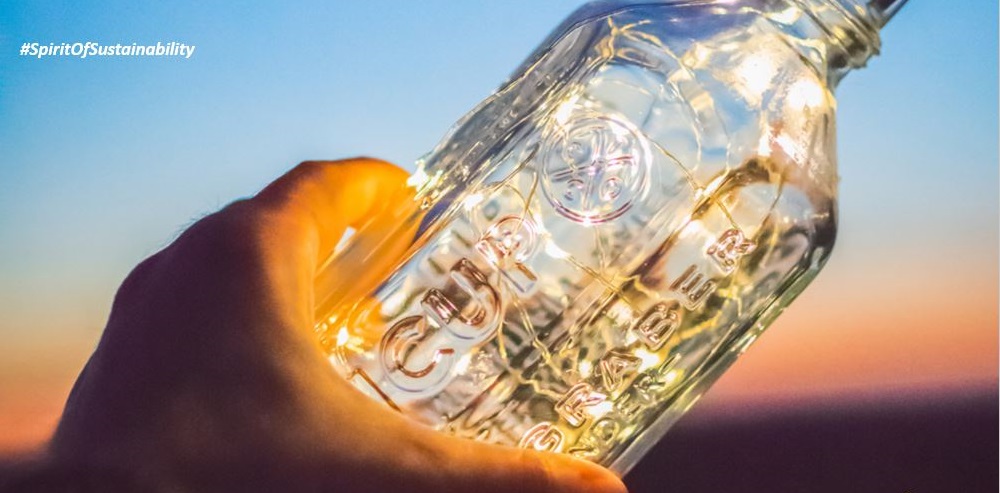
With more than 90% of spirit drinks packed in glass bottles, they have become a central, indispensable part of the product. Today, there is no way to separate the drink from its often-iconic glass bottle. For the spirits sector, glass bottles are at the crossroad of consumer safety, product identification and environmental sustainability.
The European Green Deal and the Circular Economy Action Plan set the ambitious direction of travel for the upcoming revision of the Packaging and Packaging Waste Directive (PPWD) and policy measures considered by the European Commission – such as the revision of the Essential Requirements for Packaging, with a focus on weight reduction targets – will have a significant impact on the design of glass bottles and therefore on spirits drinks.
These glass bottles meet important functions that need to be safeguarded: they guarantee consumer safety and a high level of protection of the spirits they contain. Glass packaging is endlessly recyclable and thus contributes to environmental sustainability objectives. Glass bottles protect of spirit drinks’ Intellectual Property and cultural heritage, they help fight against counterfeit and the public health risks resulting from it. Finally, they support the premiumization and brand elevation trends of fine spirits.
For all these reasons, we call on the legislators to consider the key recommendations put forward by the spirits producers regarding glass packaging.
First of all, lifecycle consideration as well as product and supply chain specificities need to inform the revision of the Essential Requirements whilst recognising the need for packaging design. To this aim, spiritsEUROPE is making concrete proposal in terms of wording of the performance criteria to be considered for those Essential Requirements.
Secondly, policy on packaging needs to be harmonised on EU level and the integrity of the Single Market for packaging and packed goods needs to be maintained. Therefore, we call for a Regulation instead of a Directive.
Last but not least, packaging policy needs to recognize that the spirits market is global and needs to consider impacts on trade of both inflows and outflows. Any disproportionate restrictions around packaging could inhibit EU producers’ ability to compete based on design aspects which would reduce competitiveness for EU products in export markets.